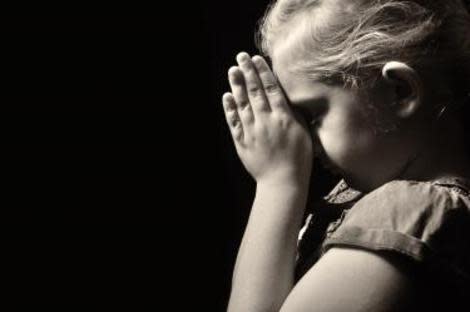Helping Your Grieving Child After a Death
By Author Carolyn j Morris for GalTime.com

As adults, we know that eventually we must deal with the death of someone we know or love. Unfortunately, many children are forced to face it much earlier than adults would like. As a mother and as someone who lost my mother at a young age, I have compiled these tips for parents to help children cope with loss.
Acknowledge loss
Much like the rest of us, children need to feel secure and significant after a loss. They don't want you to forget the loved one that has died, and they often don't articulate their feelings easily. We must acknowledge the reality of the death to be able to cope with it. Gentle, real and honest conversation will eventually help the child as they think through and feel through the grieving process.
RELATED The Ten Worst Things a Parent Can Say
Pay attention
When children are in pain, they want and need to be heard. They want to know that someone cares deeply for them. They need an adult to be available to listen, either in person, by Skype or on the phone. Everyone deals with grief differently and children are no exception.
Be reliable
Children want to know that the adult remaining in their life can be trusted to keep their word or a promise, or just show up to help. My mom died when I was eight years old. She was at home when I left for school and gone that afternoon. After she passed, I tried to be very independent and do everything to the best of my ability. I was scared that if I relied on anyone else they would also die, so I protected myself. As I grew older, I constantly strived to be a perfect wife and mother. As we know, that is neither healthy nor possible -- it is just exhausting! According to Dr. Alan Wolfelt, Ph.D., "Old unhealed wounds of grief linger and burn. We protect our self from repeated injury through creation of defence mechanisms, to prevent future losses." Help children break through that wall.
Be understanding
Your child may test the limits or act out. They want to know if you care enough to put up with their behavior. A child may be demonstrating what an adult sees as a lack of respect, but it is often a child's means of testing loved ones to be sure they will be accessible to their needs. Children still need consistency such as the same rules and routines. They need to know what to expect and that they can depend on their usual routine. They need normalcy, just as we do as adults.
RELATED 12 Tips for Getting Your Kids to Open Up and Talk to You
Be reassuring
Following a loss, children may question their identity. Remind him/her that they are still loved, and help the child to identify their role and place in the family. I caution you to watch your wording of phases. Although well meaning, they may be harmful. Phrases such as 'You'll be the head cook and dishwasher' or 'You're the man of the house now' can cause children to feel an additional sense of responsibility or pressure.
Help them remember
It's extremely important to keep memories of a loved one alive. At eight years old, I managed to ignore or block the memories of my mom, which led to frustration later in life. When I turned 40, I sent letters to family, friends and neighbours asking for stories and photos of my mom. As a result, I have a beautiful and thick album of photos, stories and letters. It is an amazing way for me to celebrate my mom's life and pass the memories along to my daughter. Get that album, journal or memory board started for your child now.
Carolyn J Morris is the author of Mourning Dove.
More from GalTime.com:
